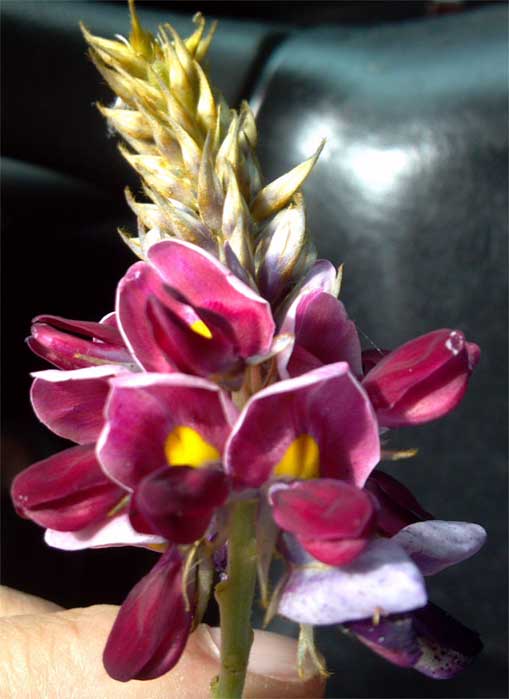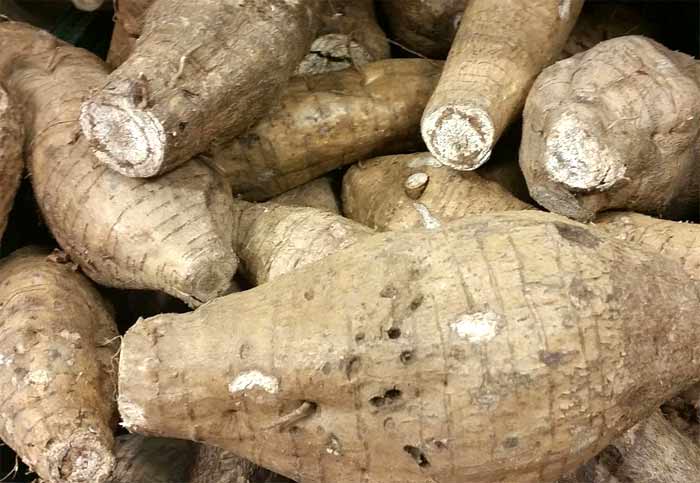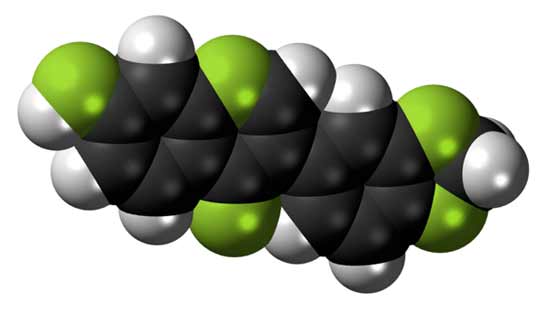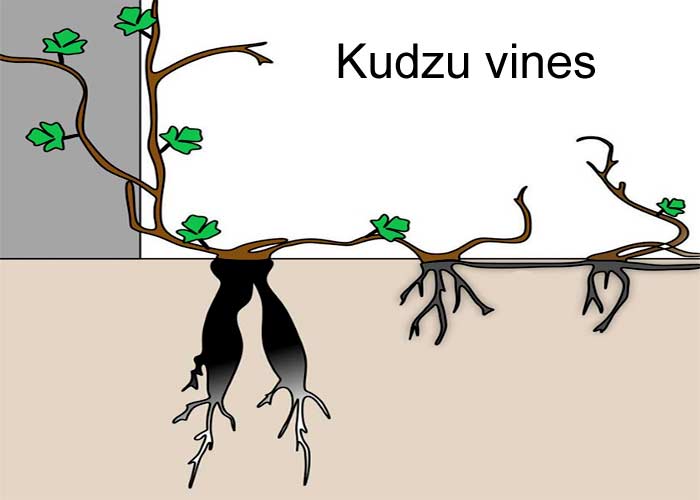Kudzu in herbal medicine
It may come as a surprise to southern gardeners that kudzu (Pueraria Lobata) has powerful medicinal properties. It is proven to help addicts and alcoholics come clean!

Kudzu is used to treat heart problems, high blood pressure, and conditions with symptoms of fever, headache, or stiff neck.
Kudzu is also useful in the treatment of alcoholism, addiction, allergies, migraines, and diarrhea.
Using kudzu to treat addiction and alcoholism
Kudzu root is proven to help fight cravings for addictive substances. Just one dose of kudzu root tea will lessen withdrawal symptoms and help addicts to recover.
Use kudzu root powder in teas, powders, and extracts to lessen addiction and withdrawals.
The future of using kudzu to treat people with addictive personalities is very promising. Tests also show that kudzu root tea can sober up an intoxicated person better than coffee.

Abundance of kudzu in Georgia
Kudzu has a bad reputation with landscapers in the southern United States, especially in Georgia and Alabama. When it gets “loose”, it spreads and smothers out everything in its path.
Kudzu climbs up trees, forms thick mats over fields, and quickly hides abandoned cars, barns, and buildings. Kudzu vines can cover a house in just one summer.
Kudzu, originally from Japan, was imported for use as an ornamental in the landscape, as animal fodder, and for soil erosion control.
Kudzu soon became an invasive plant in the southeastern United States, escaping from pastures and covering valuable forest land. Now southerners dread the thought of kudzu vines taking over their property.

Kudzu may protect against hormone-related cancers.
Kudzu may be feared by the landscape enthusiast, but the root has valuable isoflavones with chemical structures that resemble the hormone estrogen.
Kudzu roots appear to protect against hormone-related disorders such as breast cancer and prostate cancers although more research is needed.
Just to be safe, kudzu should not be taken by anyone with estrogen type cancers or undergoing hormone replacement therapy.
A lot like vitamin E
Kudzu roots contain high levels of isoflavones (up to 12%), which are known to facilitate improved blood flow throughout the body, help ease menopausal symptoms, and improve bone health.
A recent study has demonstrated that isoflavones have potent antioxidant properties, comparable to that of the well-known antioxidant vitamin E.
The antioxidant powers of kudzu root can reduce the long-term risk of cancer by preventing free radical damage to DNA. Pass the kudzu roots please!
BTW, if you don't know what antioxidants, isoflavones, and free radicals are, then you might want to read my glossary of helpful terms.
Scientific studies and kudzu
Tests show that a single dose of kudzu extract reduces alcohol consumption in binge drinking.
Kudzu is considered a safe and effective treatment for alcohol abuse and dependence. It is especially effective in binge drinking, where more than four drinks are consumed in two hours.
Binge drinking is responsible for half of alcohol related deaths. Fifty percent of college-aged drinkers say they participate in binge drinking on a regular basis.
In trials done under scientific conditions, people given kudzu root extract drank significantly less than those given placebos. The kudzu group also took longer to drink the same amount.
It is safe to use and does not cause nausea like some prescription medications.
The precise mechanism of how kudzu reduces alcohol consumption is unknown, but more studies are underway.
Analysis show that kudzu root has high levels of isoflavones. Currently, several isoflavones in kudzu appear to be especially effective in suppressing alcohol cravings.

Scientific studies suggest that isoflavones in kudzu root alter bio-availability of alcohol to the brain during the ascending alcohol phase. They also alter the peripheral and cerebral blood flow.
Puerarin, one of the most abundant isoflavones in kudzu root, is a known vasodilator approved for use in Chinese medicine following infarction and stroke.
While kudzu does not completely eliminate drinking, it is clearly effective at reducing consumption. It may be used to curb alcohol intake and offers help to anyone looking to cut down on drinking.
Kudzu has a long history in herbal medicine.
Kudzu was mentioned in the ancient, oriental text of Shen Nong in A.D. 100. These writings tell how Kudzu was used in the treatment of "wei" or superficial syndrome.
Kudzu has been recognized as an important herbal remedy in the Far East for thousands of years.
Chinese texts from before 600 AD report that kudzu root was used to treat drunkenness and alcoholism, among other things.
Kudzu - the Mile a Day Plant
A poem titled, “Kudzu”, by James Dicky starts out, “In Georgia, the legend says that you must close your windows at night to keep it out of the house.” Kudzu has many names including mile-a-day plant.

The kudzu plant is invasive.
The kudzu plant is a coarse, high climbing, twining, perennial vine with attractive, sweet-scented, lavender flowers that smell like grape chewing gum.
It grows better in the South than it does in its native land, and has no insect enemies here in the U.S.
Kudzu vines spread by underground runners and seeds. It becomes established easily in hot, humid areas like Georgia, Alabama, and Mississippi.
The huge, deep growing roots can become the size of a human body. They are hard to harvest, and hard to kill.
Many areas of the south have resorted to herbicidal spraying programs to keep the vine under control. I hate to see herbicides used to kill kudzu because the poisons also kill native flora.
Goats seem to be the best solution.When staked out in a patch of kudzu, they eat it. Eventually, over-grazing will kill kudzu, but it may take ten years!
Kudzu is not recommended for home gardens due to its invasive habits. It may be a useful herb for the treatment of addiction, and it may be an attractive vine, but you don't want want it growing in your yard.
*Always consult with a healthcare professional before using any herbal remedy especially if you are taking over-the-counter or prescription medications.
Sources:
https://www.ncbi.nlm.nih.gov/pmc/articles/PMC4510012/
Blessings to you and yours!
Thanks so much for reading my blog. Jan.

*Note - the information on this website has not been evaluated by the Food and Drug Administration.
© 2005-2024 website design and content by Janice Boling